| Share |  |
 | |||
God's Good Herbs - Why Learn About Them?
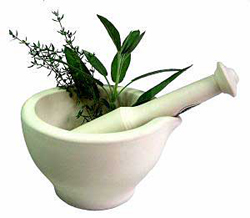 The idea of using herbs to support health may seem foreign or even primitive in a society where prescription drug advertisements abound in every form of media. In fact, over a quarter of all television commercials are advertisements for prescription drugs, a practice that occurs in only one other country in the world (New Zealand). It is also interesting to note that Americans consume nearly fifty percent of the world's pharmaceutical prescriptions, yet they comprise less than five percent of the world's population.
The idea of using herbs to support health may seem foreign or even primitive in a society where prescription drug advertisements abound in every form of media. In fact, over a quarter of all television commercials are advertisements for prescription drugs, a practice that occurs in only one other country in the world (New Zealand). It is also interesting to note that Americans consume nearly fifty percent of the world's pharmaceutical prescriptions, yet they comprise less than five percent of the world's population.
Why should we even bother with learning about herbs in this era of sophisticated modern medicine? Isn't the use of herbs for healing the body relegated to people who are somewhat "backwards" or "health nuts" or perhaps into "new age" philosophies? Does the fact that God provided these herbs and said in His Word that the leaves would be for healing no longer hold any relevance to our lives in light of scientific advancements in medicine? It may seem hard to imagine in our culture of pharmaceutical drug-based medicine, but three quarters of the world's population still use herbs and natural remedies as their primary form of health care.
Are Herbs Considered Food or Medicine?
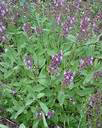 Herbs are referred to in the Bible both as food ("...I have given you every herb yielding seed, which is upon the face of all the earth, and every tree, in which is the fruit of a tree yielding seed; to you it shall be for food" - Gen. 1:29) and as a means of healing ("...and their fruit shall be for food and their leaves for healing" - Ezek. 47:12) In earlier times, food and medicine were not considered two distinct entities as much as they are today. Hippocrates, the famous Greek physician from the 5th century B.C. made little differentiation between them when he stated, "let your food be your medicine and your medicine be your food." In many parts of the world, such as the Far East, pharmacology and nutrition are generally taught together.
Herbs are referred to in the Bible both as food ("...I have given you every herb yielding seed, which is upon the face of all the earth, and every tree, in which is the fruit of a tree yielding seed; to you it shall be for food" - Gen. 1:29) and as a means of healing ("...and their fruit shall be for food and their leaves for healing" - Ezek. 47:12) In earlier times, food and medicine were not considered two distinct entities as much as they are today. Hippocrates, the famous Greek physician from the 5th century B.C. made little differentiation between them when he stated, "let your food be your medicine and your medicine be your food." In many parts of the world, such as the Far East, pharmacology and nutrition are generally taught together.
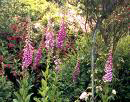 The broad based definition of an herb encompasses any part of a plant or tree, whether it be the flowers, leaves, stems, stalk, roots, nuts or berries, used to provide nutrients, flavor, or aroma for food or active phytochemical components to support health and promote healing. They can be classified according to what herbalists refer to as "degrees of action" depending upon their active ingredients. Plants producing common fruits and vegetables intended primarily for the obtainment of basic nutrients have only a mild degree of action, such as the cooling effect of a cucumber.
The broad based definition of an herb encompasses any part of a plant or tree, whether it be the flowers, leaves, stems, stalk, roots, nuts or berries, used to provide nutrients, flavor, or aroma for food or active phytochemical components to support health and promote healing. They can be classified according to what herbalists refer to as "degrees of action" depending upon their active ingredients. Plants producing common fruits and vegetables intended primarily for the obtainment of basic nutrients have only a mild degree of action, such as the cooling effect of a cucumber.
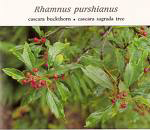 Then there are herbs with stronger healing properties that are usually consumed in smaller quantities, such as garlic or ginger. These are generally used in food for flavor, accent or garnish. Other herbs such as cascara sagrada or senna are used medicinally for a specific purpose on a limited basis since they have much stronger degrees of action on the body.
Then there are herbs with stronger healing properties that are usually consumed in smaller quantities, such as garlic or ginger. These are generally used in food for flavor, accent or garnish. Other herbs such as cascara sagrada or senna are used medicinally for a specific purpose on a limited basis since they have much stronger degrees of action on the body.
Lastly, there are herbs or plants not consumed as food with properties which can be toxic if used incorrectly without proper knowledge and training. Examples of herbs with this strong degree of action are foxglove, from which the heart drug digitalis was derived, and mistletoe with its antispasmodic properties that has been used in treating a broad range of conditions from convulsive coughs to epilepsy.
Relationship of Herbs and Medicine
 Herbs have been used for medicinal purposes as long as history has been recorded. Though drugs may seem more advanced and herbs more primitive, the fact is that many medications were initially derived from plant constituents. A vast majority of active ingredients used in prescription drugs came to the attention of researchers because of how the plants from which they were derived were used in traditional medicine. Roughly half of medications still either contain a plant phytochemical as a major or minor ingredient, or a natural plant phytochemical was the origin of its synthesis.
Herbs have been used for medicinal purposes as long as history has been recorded. Though drugs may seem more advanced and herbs more primitive, the fact is that many medications were initially derived from plant constituents. A vast majority of active ingredients used in prescription drugs came to the attention of researchers because of how the plants from which they were derived were used in traditional medicine. Roughly half of medications still either contain a plant phytochemical as a major or minor ingredient, or a natural plant phytochemical was the origin of its synthesis.
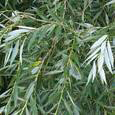 As an example, the natural glycoside called salicin, which converts to salicylic acid, was first discovered in white willow bark in the 1800's and later was found in the flower buds of an herb known as meadowsweet. It was discovered to have anti-inflammatory benefits and relieve pain.
As an example, the natural glycoside called salicin, which converts to salicylic acid, was first discovered in white willow bark in the 1800's and later was found in the flower buds of an herb known as meadowsweet. It was discovered to have anti-inflammatory benefits and relieve pain.  In 1897, a chemist from the Bayer drug company developed an acetylated form of salicylic acid that became the widely used drug now known as aspirin. However, the industry has moved more and more towards synthetic or semi-synthetic compounds to replace the once natural compounds. One reason could be that no economical incentives exist for drug firms to research and produce natural alternatives (being as they cannot be patented). Still, great benefits exists in the natural compounds.
In 1897, a chemist from the Bayer drug company developed an acetylated form of salicylic acid that became the widely used drug now known as aspirin. However, the industry has moved more and more towards synthetic or semi-synthetic compounds to replace the once natural compounds. One reason could be that no economical incentives exist for drug firms to research and produce natural alternatives (being as they cannot be patented). Still, great benefits exists in the natural compounds.
Advantages of Herbs
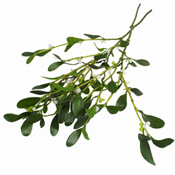 The main premise in natural healing is for the body to obtain whole food nutrients from which it may rebuild healthy living cells in tissues, organs and body systems. The nutrients and phytochemicals in herbs aid the body in the rebuilding process so it can heal itself as it was designed to do. The use of herbs in natural healing is not about applying a particular herb to fight a specific disease directly, but rather about discovering which body systems are out of balance and using various herbs to strengthen and restore normal function to those particular organs and systems.
The main premise in natural healing is for the body to obtain whole food nutrients from which it may rebuild healthy living cells in tissues, organs and body systems. The nutrients and phytochemicals in herbs aid the body in the rebuilding process so it can heal itself as it was designed to do. The use of herbs in natural healing is not about applying a particular herb to fight a specific disease directly, but rather about discovering which body systems are out of balance and using various herbs to strengthen and restore normal function to those particular organs and systems.
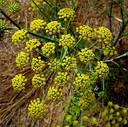 The different constituents contained in herbs such as enzymes, alkaloids, saponins, volatile oils, organic acids and mucilage, have various therapeutic actions in the body. While pharmaceutical medicine generally consists of a single component isolated from the plant or synthetically produced, the different active constituents contained in plants work to produce a therapeutic effect with greater safety and effectiveness due to the fact that they interact with other substances God placed within them. The body is able to recognize these organic substances and has built-in mechanisms for metabolizing them, as it has been designed to work with these natural remedies.
The different constituents contained in herbs such as enzymes, alkaloids, saponins, volatile oils, organic acids and mucilage, have various therapeutic actions in the body. While pharmaceutical medicine generally consists of a single component isolated from the plant or synthetically produced, the different active constituents contained in plants work to produce a therapeutic effect with greater safety and effectiveness due to the fact that they interact with other substances God placed within them. The body is able to recognize these organic substances and has built-in mechanisms for metabolizing them, as it has been designed to work with these natural remedies.
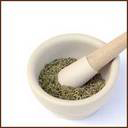 Another point to consider in comparing herbs with pharmaceutical drugs is how they work on a molecular level in the body. The normal direction of the molecular spin of organic compounds is to the right whereas synthetic substances spin abnormally to the left. The faster the molecule spins to the right, the greater the effect an herb will have on cellular regeneration and nutrient absorption. Since it takes over an hour for molecules to regain their normal rotation after a synthetic drug is taken, it is advisable to take herbs separately from medications so their benefit will not be cancelled out.
Another point to consider in comparing herbs with pharmaceutical drugs is how they work on a molecular level in the body. The normal direction of the molecular spin of organic compounds is to the right whereas synthetic substances spin abnormally to the left. The faster the molecule spins to the right, the greater the effect an herb will have on cellular regeneration and nutrient absorption. Since it takes over an hour for molecules to regain their normal rotation after a synthetic drug is taken, it is advisable to take herbs separately from medications so their benefit will not be cancelled out.
An additional advantage of herbs is that inorganic substances, such as synthetic drugs, produce only a temporary effect in the body and must be consumed over and over again to produce that same effect, while an herb enables a person to resist disease by strengthening the immune system and providing nutritional support over the long term.
Last but not least, the use of herbs are considered far safer than synthetic prescription drugs, by many experts. In a Los Angeles Times article released in October of 2008, it was reported that "the number of deaths and serious injuries associated with prescription drug use rose to record levels in the first quarter of this year, with 4,825 deaths and nearly 21,000 injuries". The data was based on voluntary reports to the Food and Drug Administration of incidences of adverse drug reactions. The article goes on to point out that researchers speculate that fewer than 10% of adverse events occurring actually make it into the system so the numbers are obviously much, much higher.
Quality of Herbs
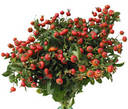 Though all foods contain some phytochemicals and all medicinal plants contain some nutrients, plants that are not grown organically may be eaten for food but cannot be used medicinally. This is because trace minerals are required to activate the enzymes needed to produce the plant's phytochemicals. Plants today are grown in such mineral deficient soil and are so weak that they cannot even resist attacks from insects and disease without heavy doses of chemicals. These plants will not have health-producing capabilities nor be able to provide greater resistance to disease to those who consume them. When using herbal remedies, it is essential to obtain herbs that are organically grown from a reputable company that produces only herbs of the highest standards and quality.
Though all foods contain some phytochemicals and all medicinal plants contain some nutrients, plants that are not grown organically may be eaten for food but cannot be used medicinally. This is because trace minerals are required to activate the enzymes needed to produce the plant's phytochemicals. Plants today are grown in such mineral deficient soil and are so weak that they cannot even resist attacks from insects and disease without heavy doses of chemicals. These plants will not have health-producing capabilities nor be able to provide greater resistance to disease to those who consume them. When using herbal remedies, it is essential to obtain herbs that are organically grown from a reputable company that produces only herbs of the highest standards and quality.
Since the start of our series of God's Good Herbs, we have looked at herbs such as olive leaf, alfalfa, peppermint, alfalfa, hawthorn berry, garlic and dandelion (previous issues are available to view if you missed reading about any of these herbs). In our next issue, we will resume examining a featured herb each month to learn more about their history, properties and current uses as herbal remedies and nutritional support for the body.
Copyright © 2008-2015 Lucinda Bedogne, CNHP, CNC
Reader Comments...
| 2009-05-12 15:36:21 "Lucinda, Very nice article and informative. Love and Prayers," - Linda |
Post Your Comment...
|
|
||||||||||||


